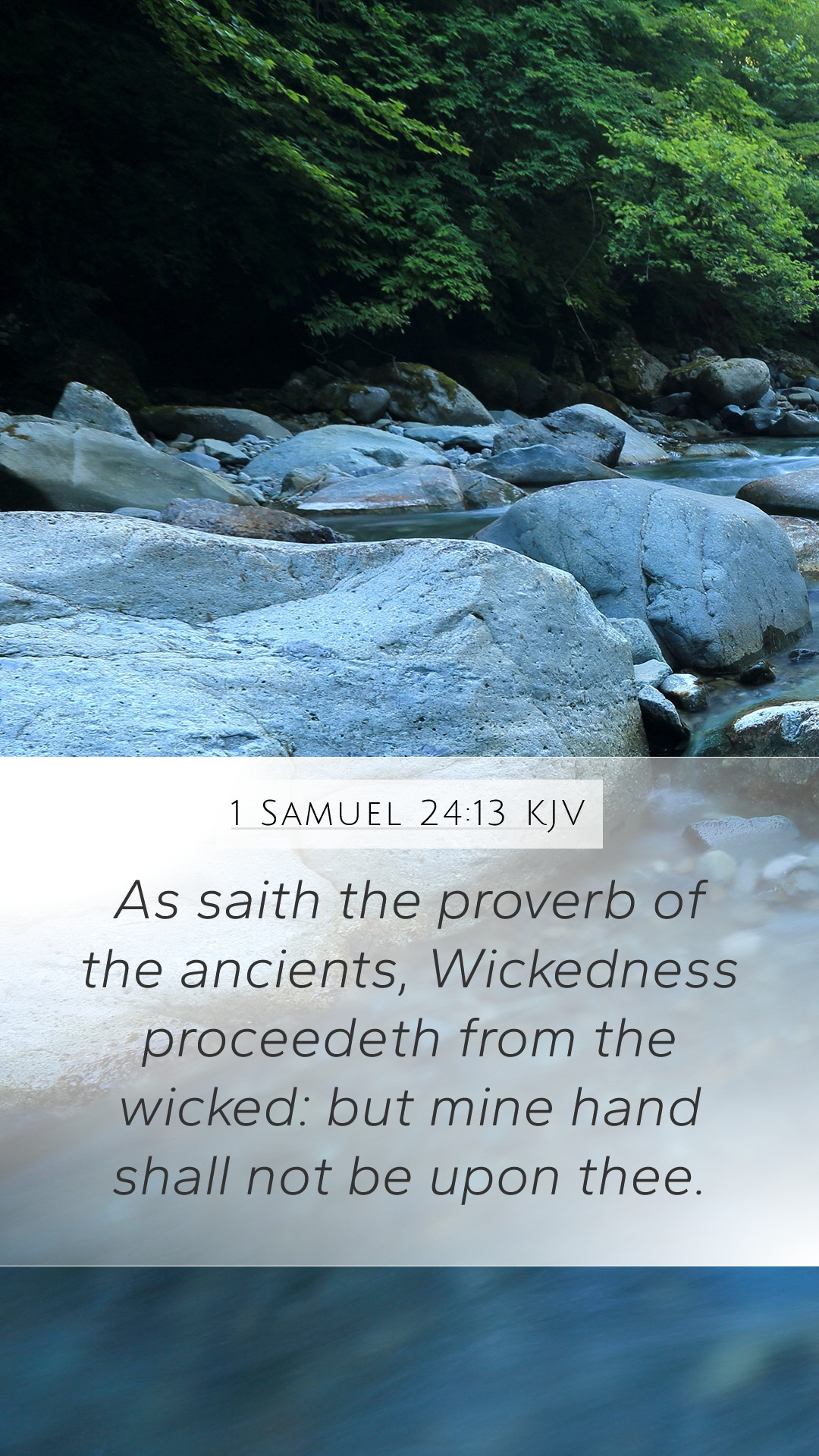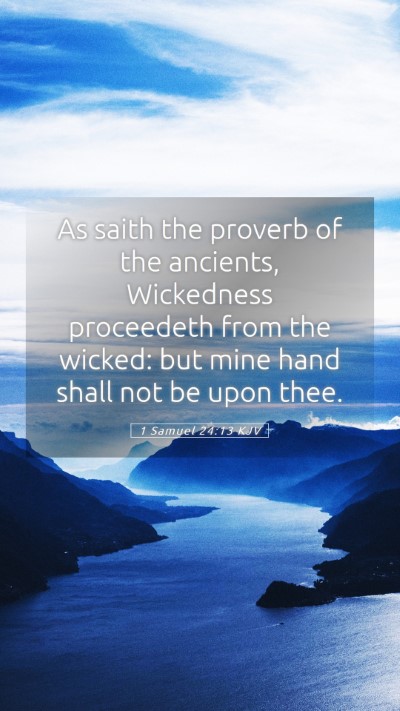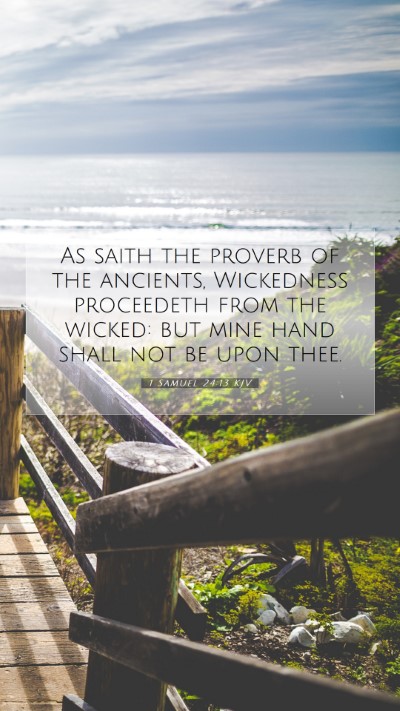1 Samuel 24:13 - Bible Verse Meaning and Commentary
Bible Verse: 1 Samuel 24:13 - "As saith the proverb of the ancients, Wickedness proceedeth from the wicked: but mine hand shall not be upon thee."
This verse occurs during a critical moment in the narrative, where David, having spared Saul's life, reflects on the nature of wickedness and justice. The message conveyed here highlights the contrast between the actions of the wicked and the principles guiding the righteous.
Summarized Insights from Public Domain Commentaries
Matthew Henry's Commentary
Principle of Nature: Matthew Henry explains that David uses a proverbial saying to illustrate the nature of man. He acknowledges that wickedness comes from those who are wicked themselves, indicating a moral understanding that actions stem from one's character. David portrays himself not as one who seeks vengeance despite being wronged, showing his commitment to justice and righteousness.
Albert Barnes' Notes
Restraint from Vengeance: Barnes elaborates on the idea of restraint. He points out that David's refusal to harm Saul, even when he had the chance, is characterized as a rare virtue. Instead of letting anger dictate his actions, David acknowledges Saul's current state of wickedness but affirms his own moral stance. This illustrates the concept that true nobility lies in mercy and self-control.
Adam Clarke's Commentary
Reflection on Wickedness: Clarke digs deeper into the proverb itself, highlighting its broader application to human behavior. He interprets David's statement as a reflection of his understanding of divine justice – that God will deal with wickedness in His own time. Moreover, Clarke emphasizes the importance of maintaining integrity in the face of wrongdoing, framing David as a model of restraint amid conflict.
Key Themes and Interpretations
- The Nature of Wickedness: The verse speaks to the inherent character of individuals, suggesting that one’s actions reveal their inner moral state.
- David's Integrity: David's choice not to retaliate against Saul exemplifies a higher moral ground, focusing on mercy rather than revenge.
- Divine Justice: Implicit in David's comments is a trust in God’s ultimate judgment over wickedness, reinforcing that we should not take justice into our own hands.
Application of the Verse
1 Samuel 24:13 serves as a powerful reminder for individuals to reflect on their own responses to injustice. This verse encourages believers to seek understanding rather than revenge, fostering a spirit of forgiveness while trusting in divine justice.
Related Bible Cross References
- Psalms 7:14-16: Discusses the consequences that wickedness brings upon itself.
- Psalms 37:1-9: Offers insights into the fate of the wicked versus the righteous.
- Romans 12:19: Encourages believers not to avenge themselves but to leave space for God’s wrath.
- Matthew 5:38-39: Jesus' teachings on turning the other cheek and avoiding retaliation.
Conclusion
In understanding 1 Samuel 24:13, readers gain insight into the nature of biblical principles regarding justice, mercy, and the character of man. David’s noble approach serves as a profound lesson in applying biblical verse meanings to everyday conflicts, inviting deeper reflection on how we engage with others in situations of moral dilemma.


